JI chief hits out at military operations, says party to besiege parliament if Nato routes restored
Munawar Hasan dwells on Memogate, elections, drone strikes.
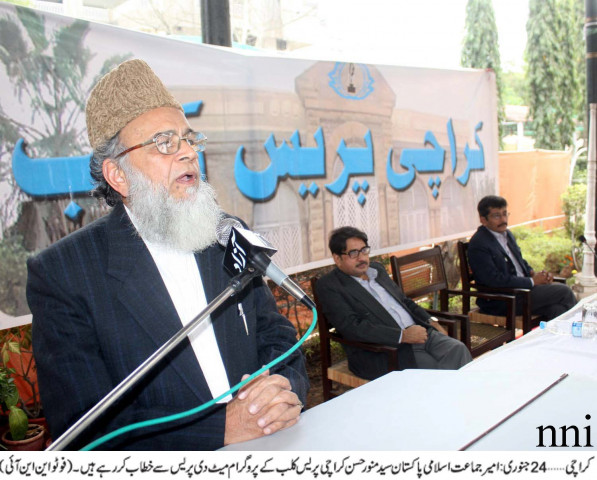
JI chief hits out at military operations, says party to besiege parliament if Nato routes restored
Jamaat-e-Islami chief Syed Munawar Hasan has hit out at the military for operations that have failed to eradicate militancy and terrorism, and said that instead, terrorism came to the GHQ. He also said he ‘condemned’ the government’s policy of de-radicalisation as it had actually failed to address any of the causes, including drone strikes.
Hasan spoke to journalists on Tuesday at a ‘meet the press’ event organised by the Karachi Press Club. He reiterated many of the party’s usual talking points, including its disenchantment with the government and its allies and its “failure” to act on the policy of reconciliation that it had announced when it was voted into power.
The JI chief also talked on current news topics, including the Memogate saga, involving an unsigned memo that Pakistani-American businessman Mansoor Ijaz alleges was authored by then-ambassador to the US Husain Haqqani. Ijaz’s refusal to travel to Pakistan to testify a judicial commission investigating the case, which dominated the news on Monday and Tuesday, was also brought up during the Q&A session with Hasan. The JI leader said that the threatening statements by the government had kept Ijaz away, but judges could travel abroad to record his statement.
Hasan was scathing about the Pakistani military, hitting out at it for its operations that he said have benefited terrorism. “An offshoot of the military operations is enforced disappearances, whose number has increased. If people protest about the whereabouts of a missing person in Balochistan, the next day that person’s body is found outside his house.”
He also noted recent press coverage of Pakistan’s role in aiding drone strikes. “We have always said that drone strikes are not possible without Pakistan’s support. The air chief has said on the record that we can stop drone strikes.” He also remarked that Nato was dependent on Pakistan for its supplies to go through to Afghanistan, since Russia had reportedly “blocked them”.
Hasan’s talking points, he said, came from coverage of Pakistan locally and abroad. While he said he had not read the parliamentary committee on national security’s recommendations on foreign policy, the foreign media had reported that Pakistan would be reopening Nato supply routes. He said that if the committee does recommend reopening the routes, the Jamaat-e-Islami would surround parliament and was in talks with other parties for their support. According to Hasan, the party wants the government to respect the parliamentary resolutions on the subject of foreign policy and disengage from the US.
However, Hasan said that of all political activities, “surrounding parliament is the easiest.”
“You need three thousand to four thousand people, the government will tear gas them, and it’ll become news. But they should resolve this through negotiations.”
“Muslim extremism, as it has been called, was not born from an ideology. It was a reaction to oppression and a creation of circumstances,” Hasan said, noting that the US was now in negotiations with the Taliban, and Pakistan should also carry out talks instead of conducting military operations.
Hasan also went off on tangents, at one point saying that “Food from [an American fried chicken franchise] and [a globally recognised American fastfood franchise] does not suit our taste, culture or pockets,” because “our taste is more suited to the bun kebabs being sold in front of [these places]”. He also said that the Occupy Wall Street-linked movement in Europe and US against capitalism bore a philosophical similarity to Maulana Maudoodi’s writings in which he said that capitalism increases poverty and helps the rich.
On domestic politics, Hasan brushed off a statement by the Awami National Party’s Shahi Syed that the next election would see parties divide into pro- and anti-Taliban camps. “He is oversimplifying things. No one party can influence the elections and get seats. There are alliances and seat adjustments and parties are exchanging notes on this right now.”
He declined to comment on Jamiat Ulema-e-Islam chief Maulana Fazlur Rehman’s comments on the JI being a hurdle to the Muttahida Majlis-e-Amal being resurrected, and said that the JI would be able to build a position in the next elections. He also evaded a question on if the party was close to a deal with the Imran Khan-led Pakistan Tehrik-e-Insaf on an electoral alliance in Punjab. He also repeated the party’s stance on granting most-favoured nation status to India, claiming it was a tactic by the US who wanted to install India as a “thanaydaar” or the police of the region.
Published in The Express Tribune, January 25th, 2012.

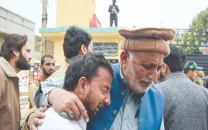

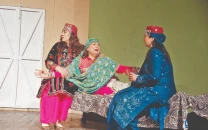

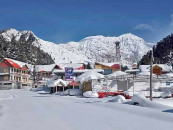
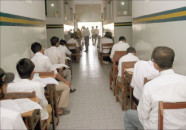












COMMENTS
Comments are moderated and generally will be posted if they are on-topic and not abusive.
For more information, please see our Comments FAQ